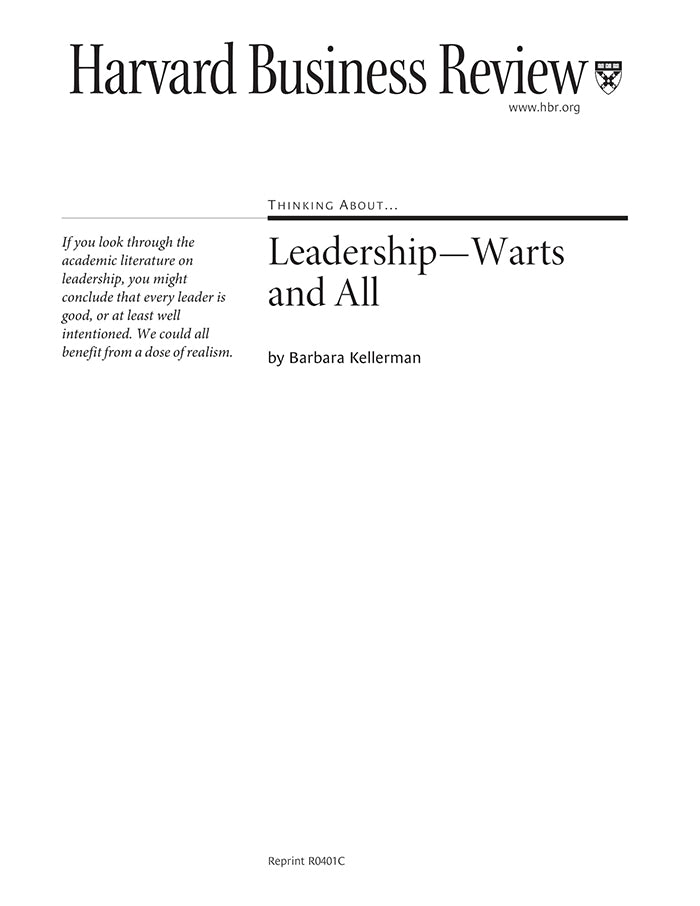Leadership--Warts and All
受取状況を読み込めませんでした
Does using Tyco's funds to purchase a $6,000 shower curtain and a $15,000 dog-shaped umbrella stand make Dennis Kozlowski a bad leader? Is Martha Stewart's career any less instructive because she may have sold some shares on the basis of a tip-off? Is leadership synonymous with moral leadership? Before 1970, the answer from most leadership theorists would certainly have been no. Look at Hitler, Stalin, Pol Pot, Mao Tse-tung--great leaders all, but hardly good men. In fact, capricious, murderous, high-handed, corrupt, and evil leaders are effective and commonplace. Everywhere, power goes hand in hand with corruption--everywhere, that is, except in the literature of business leadership. To read Tom Peters, Jay Conger, John Kotter, and most of their colleagues, leaders are, as Warren Bennis puts it, individuals who create shared meaning, have a distinctive voice, have the capacity to adapt, and have integrity. According to today's business literature, to be a leader is, by definition, to be benevolent. But leadership is not a moral concept, and it is high time we acknowledge that fact. Leaders are like the rest of us: trustworthy and deceitful, cowardly and brave, greedy and generous. To assume that all good leaders are good people is to be willfully blind to the reality of the human condition.
【書誌情報】
ページ数:12ページ
サイズ:A4
商品番号:HBSP-R0401C
発行日:2004/1/1
登録日:2012/3/28


